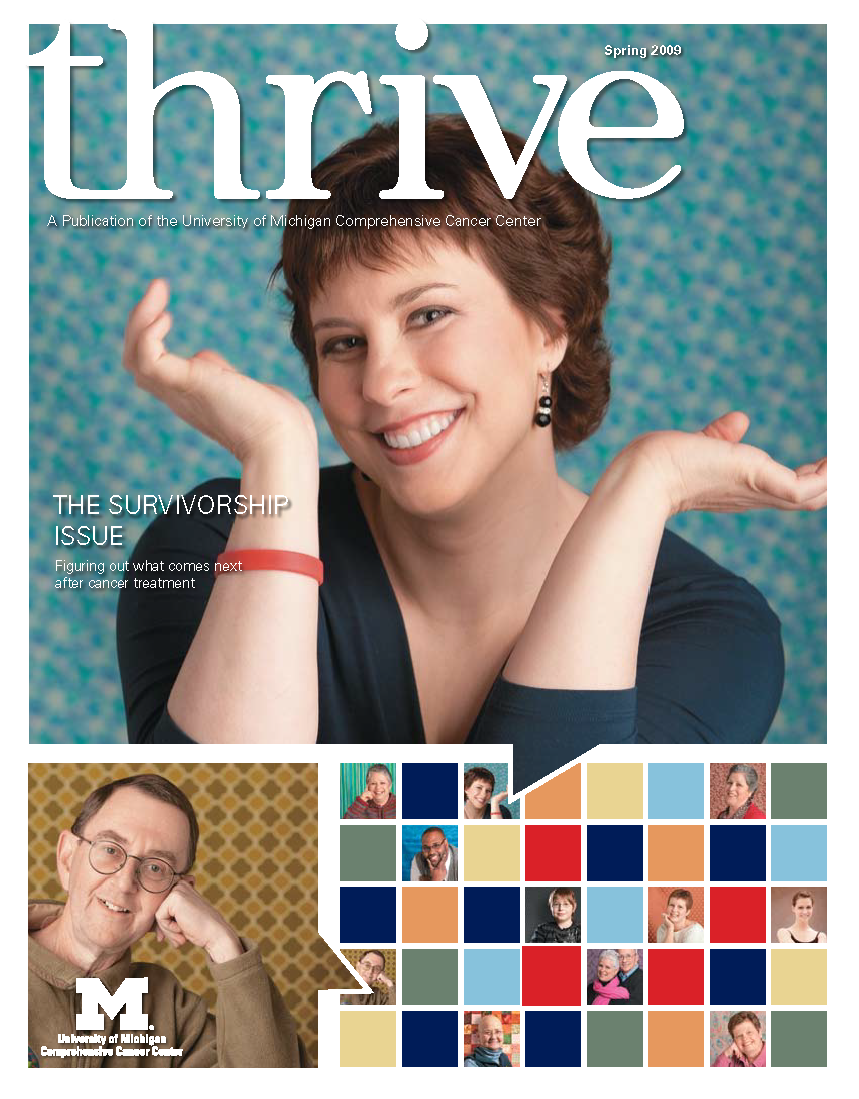Spring, 2009

Harriett DeRose is now cancer-free, although she participates in a clinical trial to study the effectiveness of continued chemotherapy to prevent recurrence. But while she was in active treatment, she turned to quilting to help her make sense of everything she was going through as a result of her diagnosis.
The University of Michigan Rogel Cancer Center has launched a pilot study to determine whether breast cancer patients benefit from a one-time transition visit at the end of their standard treatment. During the visit, a nurse provides a summary of all cancer treatment the patient received, explains the potential long-term effects of the treatment and offers referrals to other care providers.
Jarred Duncan and Laura Selecki don't remember much about what it was like to have cancer. Duncan was diagnosed when he was 10 months old with a Wilms tumor; Selecki was a little older than 2 when doctors told her family she had rhabdomyosarcoma. Now the University of Michigan Rogel Cancer Center is helping them learn about what they don't remember-and how it will affect them as they grow older.
Cancer is something to fight, something to conquer. But what happens when it's gone? What does it leave behind? How does it alter a life? And, perhaps the most unsettling question: Will it come back Survivors talk about the challenges of life after cancer
At the University of Michigan Rogel Cancer Center, our aim is to ease the transition that follows after active treatment ends. We've found that patients often feel a bit unsettled after their cancer treatment and not sure how best to move forward after treatment is completed. Our goal is to provide them with an individualized survivorship care plan, which provides information on how to manage their care in the future, as well as strategies to optimize their overall health and wellness after cancer treatment.
Eating for treatment is quite different than eating for survivorship. During treatment, our goal is to help you maintain your weight as it is. Your appetite still may be diminished for some time after treatment ends. Food may continue to taste different for a while, too. But when you do start to feel more like eating, consider it an opportunity to take charge of what you eat.
